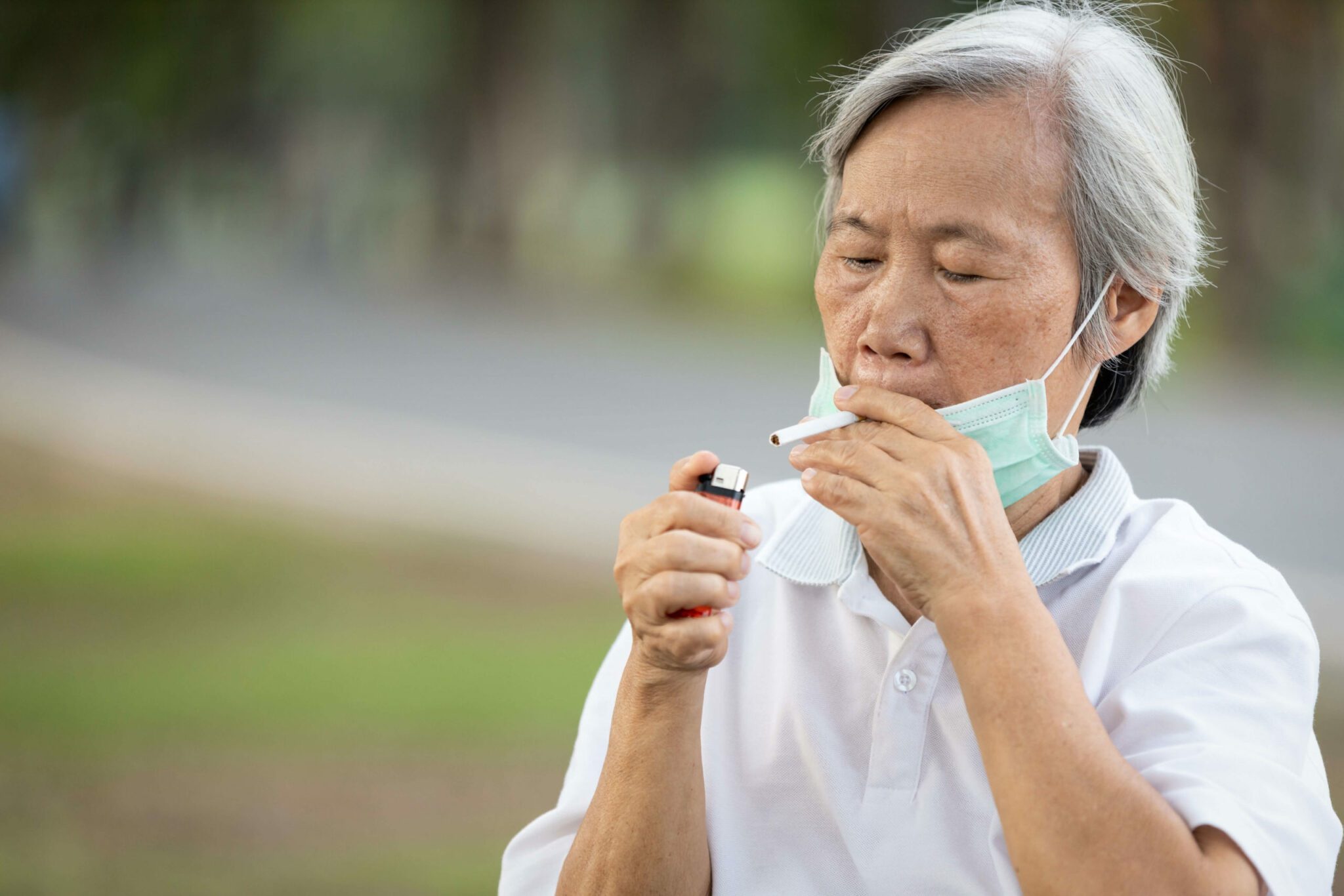Article COVID-19
COVID-19 Risk Factors – Smoking


Don't have an account? Register Now
Don't have an account? Register Now
Don't have an account? Register Now


There are certain factors that put particular groups of people at higher risk of experiencing severe disease if infected by SARS CoV-2. Click here for an overview.
Demographics and underlying health conditions are two major categories, but there are other factors that increase your risk.
These include:
This article covers Smoking.
Tobacco smoke exposure increases susceptibility to respiratory tract infections. Those who smoke are generally more affected by colds and flu than their non-smoking contemporaries. Smoking reduces lung capacity and damages the lungs and airways. Those who smoke for a prolonged period of time are at risk of developing chronic lung conditions such as emphysema (a form of chronic obstructive, pulmonary disease), as well as lung cancer and cardiovascular disease. These are all independent risk factors for the development of severe symptoms following infection with SARS CoV-2.
It is not yet clear whether smokers are more likely to develop COVID-19 than non-smokers. Initial work suggesting that nicotine could actually exert a protective effect by essentially blunting the over-activity of the immune system following virus exposure, has not been validated. These early reports are now considered to be inaccurate.
More recent findings suggest that, once infected, smokers are at increased risk of experiencing severe symptoms, when compared to non-smokers. This better supports the known negative association between respiratory viruses and smoking. The World Health Organisation (WHO) strongly advises all smokers to consider stopping for the sake of their own health and the health of those around them.
In South Africa there was a ban on the sale of cigarettes during lockdown, in an attempt to encourage people to quit. The sharing of cigarettes in parts of South Africa was considered to be a major risk factor for community transmission. Unfortunately the ban does not seem to have paid off, as very few people stopped smoking and many became reliant on the black market instead.
There is no scientific evidence of a link between e-cigarettes and COVID-19; however, recent studies have identified an increased risk of lung disorders and heart disease in those who vape regularly. Therefore, it is not unreasonable to assume that those who smoke e-cigarettes might also experience more severe symptoms following infection with SARS CoV-2.
Another thing to consider, particularly with regards to shisha, is that the sharing of mouth pieces and hoses can pose an additional transmission risk, as the virus can survive for up to 72 hours on plastic surfaces. Furthermore, the act of smoking cigarettes, vaping devices or shisha carries a transmission risk because there is regular contact between the fingers and the lips.
The WHO recommends people stop smoking. Within two to twelve weeks of stopping your lung function will improve and over the next few months you will find yourself coughing less and managing to breathe more easily. Contact a healthcare professional for advice on the best way of stopping smoking; with the current situation, many specialists are offering telephone consultations.
In the shorter-term, to reduce your risk of both becoming infected and infecting others, do not share smoking devices, wash your hands regularly and avoid spitting in public.
Sources:
It is quite astounding to think that five months ago barely anyone outside of China had heard of Coronavirus disease...
There are certain factors that put particular groups of people at higher risk of experiencing severe disease if...
Prior to January 2020, it is likely that very few of us would have heard the phrase ‘social distancing’. Now, as...
Register to get weekly updates.
© Nabta Health Ltd 2017 - 2021


| Cookie | Duration | Description |
|---|---|---|
| cookielawinfo-checkbox-analytics | 11 months | This cookie is set by GDPR Cookie Consent plugin. The cookie is used to store the user consent for the cookies in the category "Analytics". |
| cookielawinfo-checkbox-functional | 11 months | The cookie is set by GDPR cookie consent to record the user consent for the cookies in the category "Functional". |
| cookielawinfo-checkbox-necessary | 11 months | This cookie is set by GDPR Cookie Consent plugin. The cookies is used to store the user consent for the cookies in the category "Necessary". |
| cookielawinfo-checkbox-others | 11 months | This cookie is set by GDPR Cookie Consent plugin. The cookie is used to store the user consent for the cookies in the category "Other. |
| cookielawinfo-checkbox-performance | 11 months | This cookie is set by GDPR Cookie Consent plugin. The cookie is used to store the user consent for the cookies in the category "Performance". |
| viewed_cookie_policy | 11 months | The cookie is set by the GDPR Cookie Consent plugin and is used to store whether or not user has consented to the use of cookies. It does not store any personal data. |

